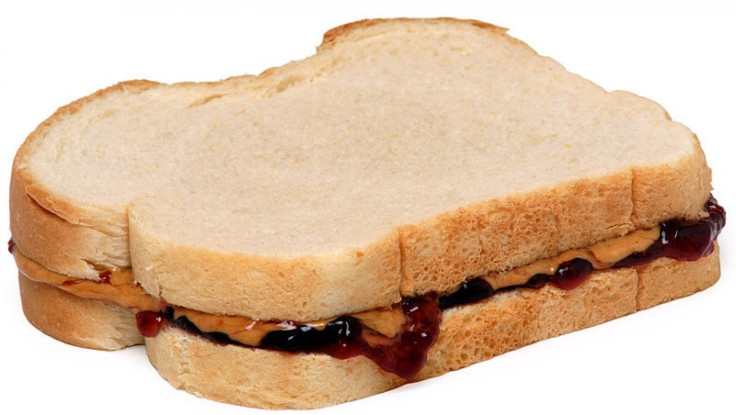PB&J Ban: Arkansas School Blacklists Delicious Peanut Spread, Causes Facebook Backlash

A Viola, Ark., schoolboy was denied his homemade peanut-butter-and-jelly sandwich at lunch because of a ban on peanut products, sparking an outcry on Facebook over lunchtime rights and the ever-growing list of child-safety-oriented rules that leave some parents hungry for common sense.
The boy, Jenkins Clifton-Jones, saw his PB&J sandwich confiscated and replaced by a teacher, who then sent the student home with a note explaining the school's no-peanut-products policy, according to Area Wide News.
The ban on peanut products -- including but not limited to PB&J sandwiches -- has been in place for six years, Viola School District Superintendent John R. May told Area Wide News, pointing to a student with severe allergies who can be affected simply by breathing near peanut products.
"The policy is in place to protect those with a severe, life-threatening problem," May said. "Until we figure out something else, it would be foolish to drop the policy."
Clifton-Jones' mother, Denise, took to Facebook -- of course -- to discuss the sensibility of the ban. The response shocked her, and ballooned into its own online movement.
The resulting Facebook page, dubbed "School Nut Ban Discussion," now runs the gamut from concerned parents of allergic kids to outraged champions of freedom. Things have apparently become heated enough to include a "no-naughty language" warning.
"There are many severe allergies to many kinds of healthy foods," Clifton-Jones wrote in one post. "Just because a few children are allergic to something is no good reason to ban all kids from eating their favorite foods. Public schools should try to accommodate all kids to the best of their ability, not accommodate a few at the expense of the masses."
May promised the school's Wellness Committee will evaluate the current policy to see if any changes are needed or even possible.
But peanuts are hardly the only foods that can invoke a crisis-level allergic reaction, known as anaphylactic shock, which can lead to difficulty breathing, loss of consciousness, and even death.
In fact, eight kinds of foods account for 90 percent of all food-allergy reactions, according to the U.S. Centers for Disease Control and Prevention in Atlanta. Besides peanuts, they are cow's milk, eggs, fish, shellfish, soybeans, wheat, and tree nuts (such as almonds, cashews, hazelnuts, macadamia nuts, pecans, pistachios, and walnuts).
© Copyright IBTimes 2024. All rights reserved.





















